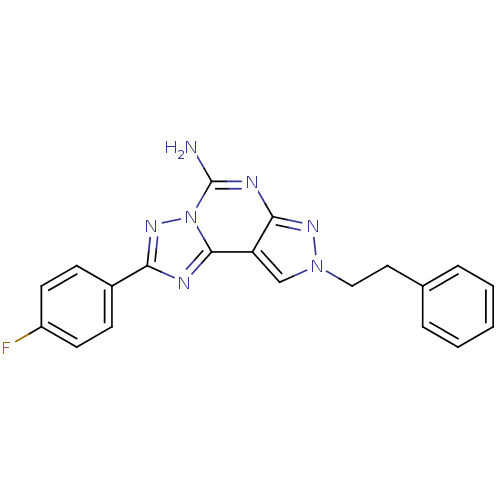BDBM50315629 2-(4-Fluorophenyl)-8-phenylethylpyrazolo[4,3-e]1,2,4-triazolo-[1,5-c]pyrimidin-5-amine::CHEMBL1093432
SMILES Nc1nc2nn(CCc3ccccc3)cc2c2nc(nn12)-c1ccc(F)cc1
InChI Key InChIKey=GMRHTQCCQOJVEP-UHFFFAOYSA-N
Data 4 KI
Activity Spreadsheet -- Enzyme Inhibition Constant Data from BindingDB
 Found 4 hits for monomerid = 50315629
Found 4 hits for monomerid = 50315629
Affinity DataKi: 39.1nMAssay Description:Displacement of [3H]CCPA from human cloned adenosine A1 receptor expressed in CHO cellsMore data for this Ligand-Target Pair
Affinity DataKi: 50.6nMAssay Description:Displacement of [3H]NECA from human cloned adenosine A3 receptor expressed in CHO cellsMore data for this Ligand-Target Pair
Affinity DataKi: 127nMAssay Description:Displacement of [3H]NECA from human cloned adenosine A2a receptor expressed in CHO cellsMore data for this Ligand-Target Pair
Affinity DataKi: >1.00E+4nMAssay Description:Antagonist activity at human cloned adenosine A2b receptor expressed in CHO cells assessed as inhibition of NECA-stimulated cAMP accumulationMore data for this Ligand-Target Pair
